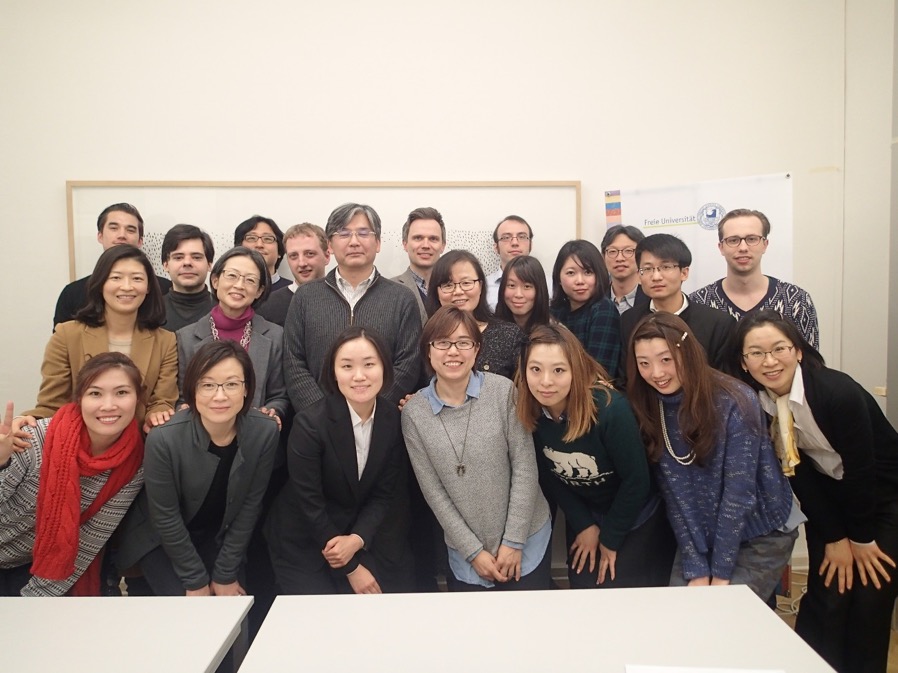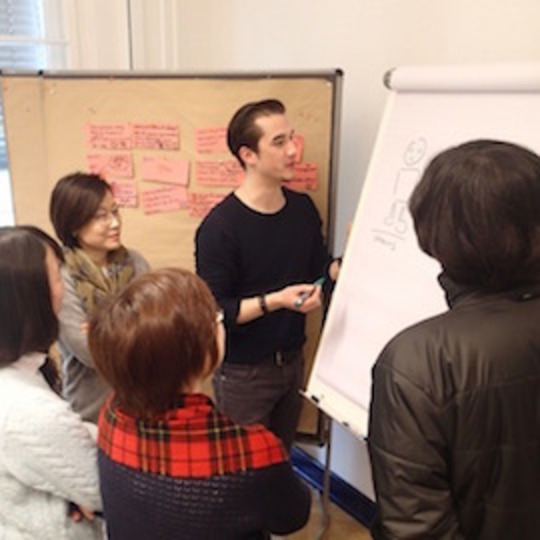
Report: “Joint Seminar: The University of Tokyo-Freie Universität Berlin” Lige Bao, Ning Yu, Rie Yamada
- Dates:
- Wednesday, February 18 - Wednesday, February 25, 2015
- Venue:
- Berlin, Germany
- Organized by:
- The Educational Project 4 "Producing Multicultural Communities: Methods, Designs, and Praxes," Integrated Human Sciences Program for Cultural Diversity, The University of Tokyo
In February, as an educational activity of Project 4, six IHS members attended "Joint Seminar: The University of Tokyo-Freie Universität Berlin." This study trip was consisted of three parts: a two-day individual research activities, a two-day seminar to improve academic presentation skills and a one-day joint workshop in which doctoral course students present their own research plan. After this joint seminar, students could have a better understanding of the following two points: how to give effective presentations, and how one can conduct good research. In addition, we were given two days for individual research activities in order to grasp the differing perspectives, motivations, and movements that have shaped Berlin for the purpose of reflection on the history and societal changes in East Asia.
Individual Research Activities
On the first day for our individual research activity, Lige Bao, Ning Yu and Lillian Tsay went to the Sachsenhausen Concentration Camp. The guide Jared was a foreign student from Indiana, America who had been lived in Germany since 2007 and was working as a part-time guide using his spare time. He acquired proficiency in the history of Nazi and made a vivid and inspiring explanation through this visit tour. Since the time was limited, the guide could only introduce the layout of the camp and the functions of the buildings while he guided us around the symbolic "triangle of terror" in the concentration camp. With the help of his commentaries, the buildings became the vivid evidence of forced labor, genocide, war crimes, and human rights violations. We felt even stronger this emotion when we visited the remaining of the gas chambers and the crematoria where thousands of people were killed.
During the walk, some additional information was shared by the guide, such as the experience of the women in the concentration camp, the hierarchy inside the prisoners, how they used little leisure time to help them survive in the camp, and also the life after concentration camp for the survivors. For many prisoners who survived from the physical punishment and terror in the concentration camp, the majority of them still suffered the psychological torment throughout their remaining years. These explanations helped us construct a vivid imagination of how people locked up here suffered in the exact place where nowadays we stand.
"What to believe and why they believe" is included as a question asked by the guide, which leads us become curious to know how the German people themselves receive the education on this history and how this is involved in the construction of the current German identity. In this issue, the historian and academic should have the responsibility for deciding the appropriate educational attitude and exact material not only for the German people but also for the peace construction of the world. We should know that Nazi was not the first time when the cruelty of the humankind was shown, but we really hope this could be the last time.
Presentation Skills Seminar
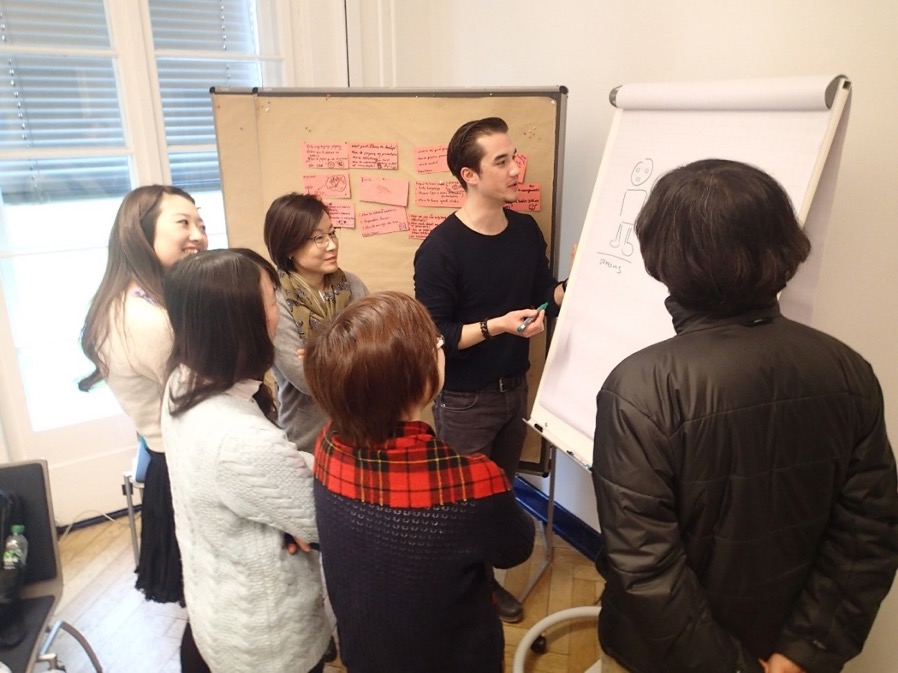
Over the next two days, we attended the "Basic Presentation Skills" seminar with the students from the Institute of Korean Studies of Freie Universität Berlin. Doctor John Kluempers lectured us on the necessary elements of a successful academic presentation, and from those perspectives he taught us some fundamental principles on preparing a presentation. The practice after the explanation of each section was hard for every one but it was really worthwhile with the help of the lecturer and other students. Although many of us had given some presentations in different occasions before, they were mostly done without knowing if the style of presentation is appropriate or not in regards to the venue. Through the systematic training in this seminar on academic presentation skills, we believe we could match the setting and audience in the future presentation, be brave enough to spread our own ideas using our gestures, facial expressions and have more strategies to solve the unexpected situation during the presentation.
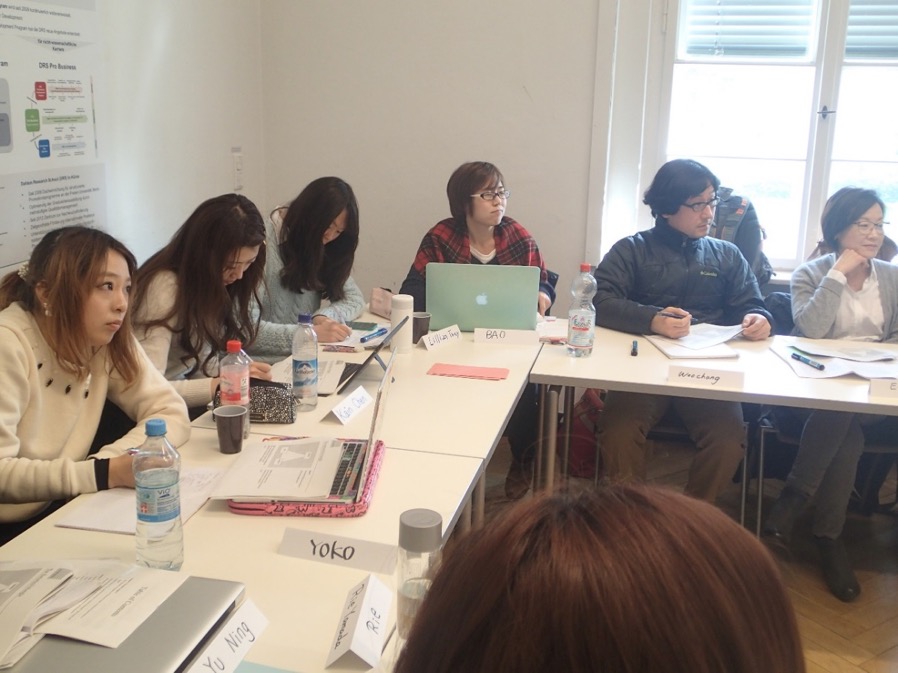
Joint Workshop
On 22th, in order to practice what we had learned from the presentation seminar we attended the joint workshop, in which six speakers in their doctoral course gave presentations on their research projects. The topics were various and divided into three parts: 'Narrative Inquiry', 'Voices of the Marginalized' and 'Challenges of Globalization'. From the University of Tokyo, three doctoral students, Lige Bao ("An Oasis in the Cultural Desert?" Emergence of Bottom-up Type of Education: A Study of Modern Sishu in Beijing), Ning Yu (The Meaning of "Public Space" in the World of China's Independent Film Festivals: The Beijing Queer Film Festivals as a Case Study), and Rie Yamada (What Kind of "Family" was Blamed as a Cause of Illness: Rethinking Clinical Discourse) made presentations. Also three master's students, Yoko Fujishima, Lillian Tsay, and Haiyin Chen were discussants for the students from Freie Universität. The professors, research assistants, and fellow students from both universities gave many insightful comments on everyone's presentation. There were lots of beneficial and inspiring comments for the presenters to improve their future research effectively. And the presentations were further improved due to the presentation workshop that we attended prior to the seminar session.
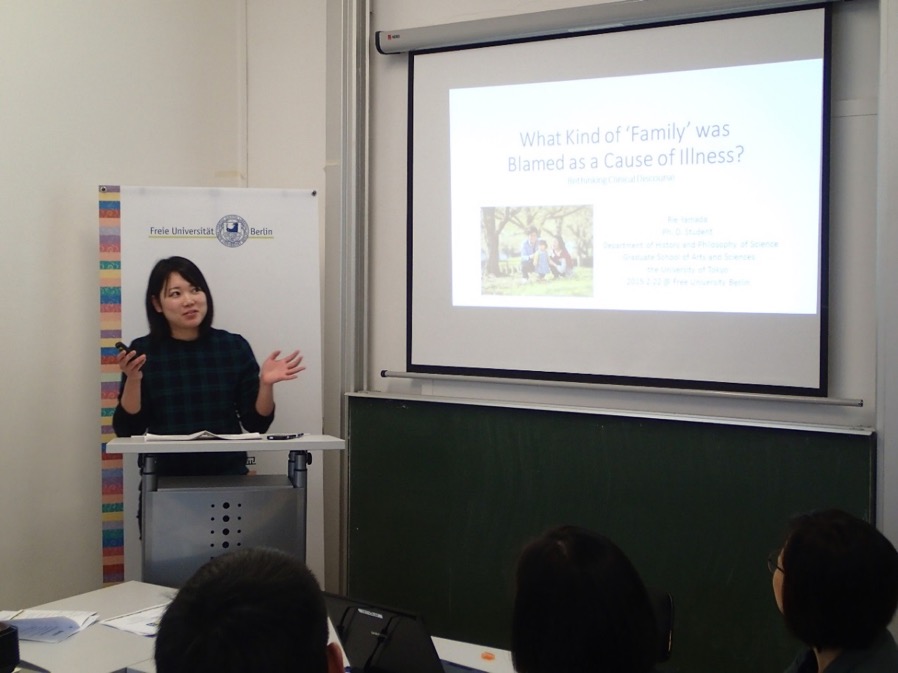
At the end of the joint workshop, it was suggested that while the specific topics of our presentations were different, the effort to learn from each other at least let us sense the enthusiasm of each one and feel encouraged to continue our research on East Asia. We hope this co-hosted international activities will not only help us improve our own research, but also bring about a positive impact on the field of East Asia studies, where we could .learn from other's strong points to make up for one's weakness.
